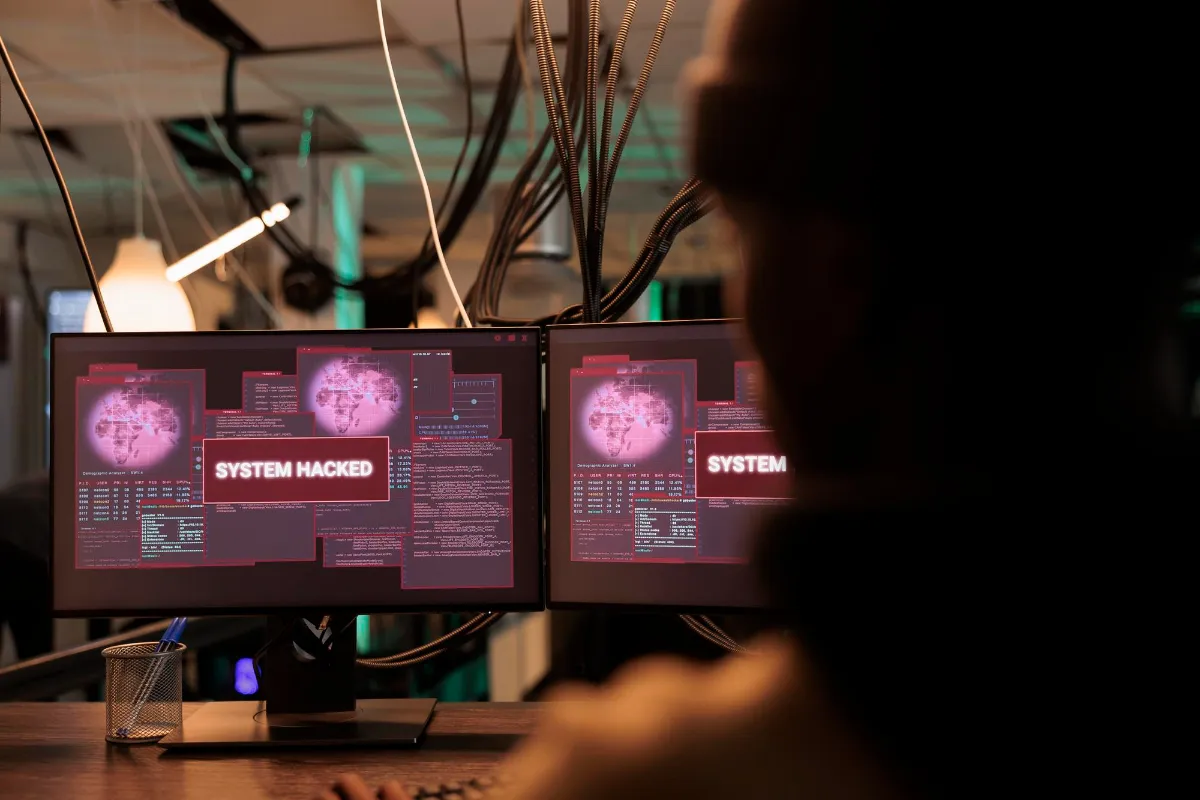In today’s fast-paced, interconnected world, politics and cybersecurity have become inextricably linked. The digital age has ushered in a new era of possibilities, but also a host of challenges. One of the most pressing concerns in this landscape is the protection of data in a politically charged environment.
The Challenges of Cybersecurity in Politics
With every passing day, we witness the profound impact of technology on politics and vice versa. Governments are increasingly relying on digital systems to store sensitive information, making them potential targets for hackers and cybercriminals. The stakes have never been higher as political agendas intertwine with technological advancements.
Protecting data in a politically charged environment is a complex task that requires constant vigilance. The landscape is constantly evolving, and new threats emerge at an alarming rate. From state-sponsored attacks to the weaponization of data, the challenges are manifold.
Statistics reveal a disturbing trend; the number of cyberattacks targeting political organizations has skyrocketed in recent years. According to the latest reports, cyberattacks on political parties and government institutions have increased by an alarming 400% worldwide. These attacks can have devastating consequences, not just for the targeted organizations but for the entire democratic process.

State-Sponsored Cyberattacks: A Growing Concern
One particularly worrisome trend is the rise of state-sponsored attacks. Governments, both large and small, are using technology as a tool for political manipulation and espionage. These attacks often target critical infrastructure, such as power grids and communication networks, threatening national security and leaving the general population vulnerable.
This wave of attacks has led to a growing divide between politics and cybersecurity. As governments scramble to defend their digital assets, they often resort to heavy-handed regulations and surveillance measures. While the intention may be to safeguard national security, the erosion of privacy is a significant concern.
State-sponsored attacks are not limited to a specific region or political ideology. Countries across the globe, from superpowers to emerging nations, have embraced cyber warfare as a means to gain an upper hand in geopolitical conflicts. The sophistication and scale of these attacks are staggering, with hackers employing advanced techniques to breach even the most secure systems.
One infamous example of a state-sponsored attack is the 2016 hacking of the Democratic National Committee (DNC) during the U.S. presidential election. The attack, allegedly carried out by Russian hackers, resulted in the leak of sensitive emails and internal documents, causing significant damage to the Democratic Party’s reputation. The incident highlighted the vulnerability of political organizations and raised concerns about the integrity of democratic processes.
State-sponsored attacks not only target political parties and government institutions but also extend to individual politicians and activists. Dissidents and opposition figures often find themselves at the receiving end of cyber espionage, with their personal information and communications compromised. This not only undermines their ability to operate freely but also poses a threat to their safety and well-being.
As governments grapple with the increasing threat of state-sponsored attacks, they are forced to allocate significant resources to cybersecurity. This includes investing in advanced technologies, hiring skilled professionals, and establishing robust defense mechanisms. However, the cat-and-mouse game between hackers and defenders continues, with each side constantly adapting and evolving their tactics.
Another challenge in protecting data in a politically charged environment is the weaponization of data. In today’s digital age, information has become a powerful tool that can be used to manipulate public opinion, influence elections, and sow discord. The widespread use of social media platforms and the ease of spreading misinformation have made it easier than ever to exploit data for political gain.
Political campaigns and organizations collect vast amounts of data on individuals, ranging from their personal preferences to their online behavior. This data is then used to create targeted campaigns, tailored messages, and personalized advertisements. While this can be an effective strategy for engaging with voters, it also raises concerns about privacy and consent.
Moreover, the weaponization of data goes beyond targeted advertising. In some cases, data is deliberately manipulated or fabricated to spread false narratives and misinformation. This can have far-reaching consequences, undermining trust in institutions, fueling social divisions, and distorting public discourse.
Protecting data in a politically charged environment requires a multi-faceted approach. It involves not only robust cybersecurity measures but also transparency, accountability, and ethical considerations. Governments, political organizations, and technology companies must work together to establish clear guidelines and safeguards to ensure the integrity of democratic processes and protect the privacy of individuals.
Exploring the Intersection of Politics and Cybersecurity
Despite these challenges, there is hope on the horizon. The intersection of politics and cybersecurity presents an opportunity for collaboration and innovation. To address the complex issues at hand, policymakers must work alongside technology experts, fostering a symbiotic relationship between the two.
Transparency and accountability are key pillars in building trust between governments, technology companies, and citizens. By openly discussing the challenges and exploring potential solutions, we can bridge the gap between conflicting priorities. This dialogue must extend beyond national borders, as cyber threats know no boundaries.
Moreover, investing in cutting-edge technology is essential to staying one step ahead of cyber criminals. Machine learning algorithms have proven to be effective in detecting and mitigating threats, significantly improving our ability to protect data in a politically charged environment. The power of technology can be harnessed to defend against the very attacks it has enabled.
The Evolving Role of Cybersecurity
Cybersecurity is no longer viewed as a mere technical issue. It has become a critical aspect of national security and governance. Governments around the world are recognizing the need to bolster their cybersecurity infrastructure, both to protect their own interests and to ensure the safety and privacy of their citizens.
This paradigm shift is encouraging, but it is imperative that we strike a delicate balance between national security and personal privacy. The digital age has provided us with countless opportunities for progress and connectivity, but it has also given rise to new threats. We cannot sacrifice individual freedoms in the name of security.

The Growing Divide Between Politics and Cybersecurity
Unfortunately, the growing divide between politics and cybersecurity threatens progress. Political ideologies and vested interests often hinder the implementation of effective cybersecurity measures. The result is a fragmented landscape where different nations have varying levels of cyber resilience.
Greater international cooperation is required to address this issue comprehensively. Cyber threats do not discriminate, and a united global front is necessary to combat them effectively. By sharing knowledge and resources, we can build a stronger defense against those who seek to exploit the insecurities of our interconnected world.
The Role of Public Awareness and Education
An informed citizenry is essential in the fight against cyber threats. Public awareness campaigns play a crucial role in educating individuals about the risks they face and the steps they can take to protect themselves. Information is power, and disseminating it widely is of utmost importance in the digital age.
Furthermore, educational institutions must adapt their curricula to reflect the evolving landscape of cybersecurity. By equipping students with the necessary knowledge and skills, we can ensure a future workforce that is capable of defending against emerging threats.
Balancing National Security with Privacy in the Digital Age
As we navigate the intricate web of politics and technology, striking a balance between national security and privacy is paramount. A robust cybersecurity framework must safeguard the interests of both the state and its citizens.
Open dialogue and collaboration will be critical in achieving this delicate equilibrium. Governments must engage with technology companies and civil society organizations to develop policies and regulations that address the challenges without encroaching on individual liberties.
In conclusion, the age-old adage holds true: with great power comes great responsibility. The digital age presents us with unprecedented opportunities, but it is also fraught with risks. We must navigate the intersection of politics and technology with caution, working together to protect our data, our privacy, and our democratic ideals.

